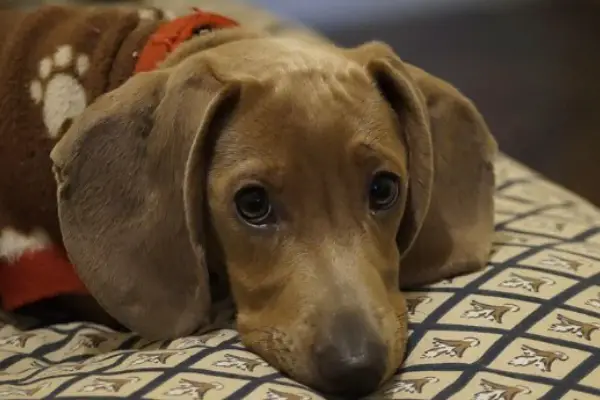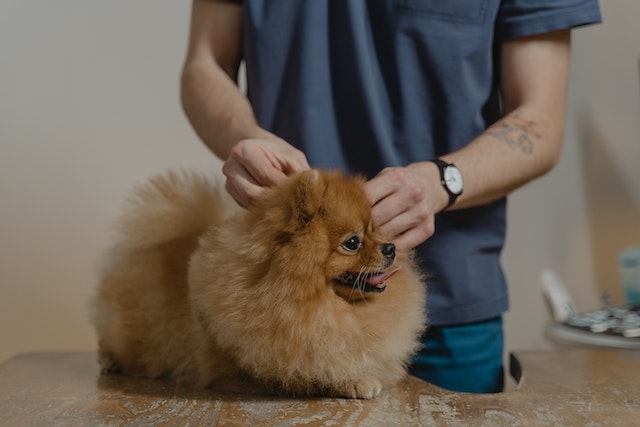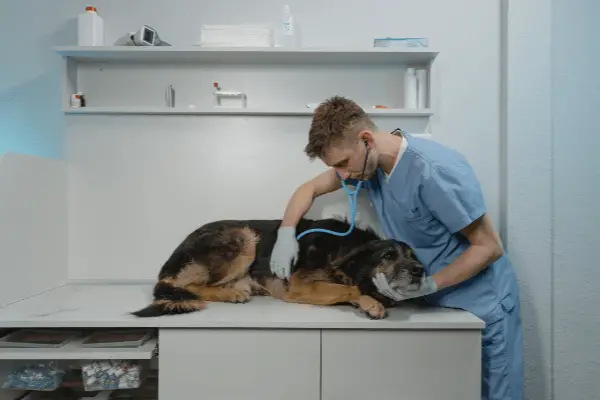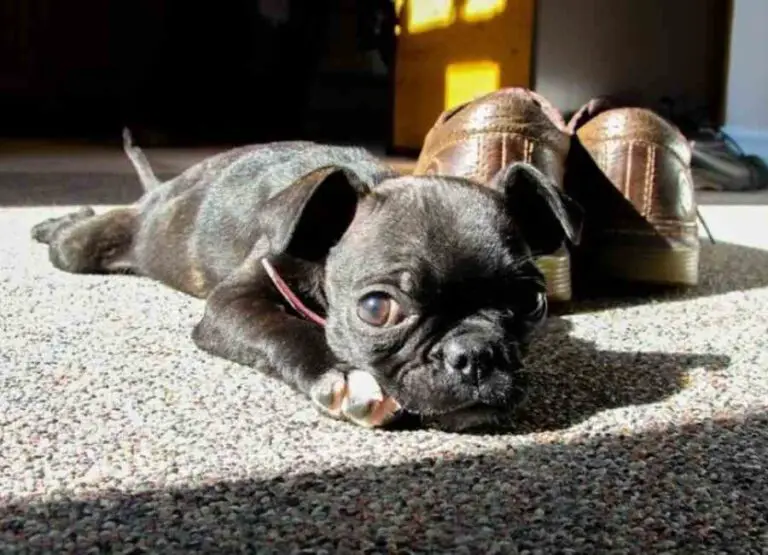11 Common Older Maltese Problems & Tips

At senior age, there are lots of older Maltese problems that owners face and that is exactly what we will be discussing.
We will also be looking at ways to help an old Maltese as well as things you should avoid.
So…
Common older Maltese problems
Let’s discuss…
Here are the most common older Maltese problems you should know:
1. Stiff joints
This is one of the most common signs of problems that will be seen in older Maltese dogs.
This sometimes starts at the age of 11 to 13 years of age, and you should be careful at this age.
You should always contact your veterinarian if you start seeing stiff joints in your Maltese.
You will notice this when your Maltese reduces its mobility rate in his senior years.
Again when you touch his joints he may display some signs of being in pain.
2. Increased shedding on sleeping spot
Maltese dogs are not known for excessive shedding like pugs, this is because they don’t have undercoats.
Dogs shed for a variety of causes, the majority of which may be readily resolved with the assistance of a veterinarian.
However, if your Maltese continues to sweat excessively after receiving treatment from your veterinarian, this is an old Maltese issue.
When your senior Maltese stands up, and you notice a handful of fur from where he got up, you know he’s nearing the end of his life.
So get ready to see more shedding as your Maltese grow older and find out ways to control shedding in Maltese.
3. Loss of coordination
The major symptom found in older Maltese dogs as they age is a loss of balance and motor function, and there is nothing you can do about it.
If your Maltese dog stands up and moves about, he or she may seem wobbly or disoriented, which indicates that the dog is losing coordination.
As much as possible, confine them to a small, peaceful, and comfortable place, and remove anything they could bump into or knock over.
Providing a safe atmosphere for them, as well as any aid they may require.
4. Decreased mobility rate
Your Maltese dog’s mobility will degrade at a greater pace than usual as he or she gets older.
As the Maltese dog matures, his or her strength may diminish to the point where he or she is unable to stand as long as previously.
The legs of your Maltese dog may become fatigued, making it difficult for them to climb stairs or cross slippery surfaces.
Your Maltese dog’s ability to stand and walk may deteriorate over time, and some may even struggle to lift their heads.
One of the final stages before your Maltese dog quits up is a decrease in movement speed. This will be clear, and you should expect to see it.
5. Self-isolation and increased sleeping
Another older Maltese problem is self-isolation and increased sleeping time.
This is when you notice that your active Maltese that runs up and down has now preferred to hide and sleep.
As Maltese gets into an older age they tend to have less energy because they no longer eat more as they do at their younger age.
Sometimes they will just lie down as you call them and ignore your call.
6. Reduced appetite
If your Maltese dog has no worms or dental problems but sheds excessively on a resting location, it’s time to put him down.
As Maltese dog ages, its cent cells age as well, which can lead to your Maltese rejecting meals on a regular basis as its internal organs deteriorate.
Most illnesses might cause your Maltese dog’s appetite to alter, so this isn’t necessarily a sign that he’s entering his senior years.
Maltese dogs, on the other hand, frequently stop eating or vary their food routines as they become older.
Unexpected changes in your Maltese dog’s food habits should be taken seriously since they might suggest they are growing older.
7. Reduction in weight
As Maltese age, they tend to eat less, which might contribute to weight loss, which is common in senior dogs.
The majority of Maltese dog owners will find this tough to witness, and going through it with your Maltese dog will need courage.
It’s an old age problem if your Maltese dog continues to lose weight after your doctor has ruled out all other possibilities.
Senior Maltese dogs seldom become hungry or thin simply because of their age.
This reduction in weight is linked mostly to loss of appetite that arises as a Maltese dog grows older.
8. Fluctuations in body temperature
Maltese dogs may lose their ability to control their own body temperatures as they age or have other health conditions, leading them to lose body heat often.
As a result, a senior Maltese dog’s body temperature will be lower than usual, which the owner will notice.
Just remember that if you live in a cooler climate, your puppy may become overheated, and if you don’t, your puppy may die or become unwell.
You may also keep your Maltese dog warm by using a heated bed or a warm blanket to raise his body temperature.
It’s a warning indicator if your senior Maltese dog’s body temperature continues to decrease after you’ve scheduled an appointment with your veterinarian.
9. Potty accidents
Incontinence, or the inability to control urination, is a typical problem in older Maltese dogs.
Taking your Maltese dog to the vet after a home accident might be beneficial at first, but as time passes, the vet may become less involved in the last days.
In general, if your Maltese has incontinence but is otherwise acting normal, such as having energy, playing about, and being cheery, it is not nearing the end of its life.
During this time, it’s vital that you keep them and their bed clean and dry.
As Maltese enters its senior years controlling his bladder because more difficult.
10. Loss of Interest in favorite activities
When your Maltese’s life is coming to an end, he may lose interest in everything around him, even you, his owner.
Places he used to appreciate are now forbidden, fascinating things he used to enjoy are now repellent, and he is no longer permitted to greet you at the door.
Indeed, one of the most common and painful signs that your Maltese quality of life is diminishing is this.
11. Decreased vision and hearing
While it is usual for older Maltese dogs to lose their vision and hearing, this does not mean that apparent changes should be dismissed.
Glaucoma, cataracts, and eye infections are all curable visual problems. In the event of glaucoma, prompt treatment may be able to save a dog’s sight.
Excessive blinking, bloodshot eyes, a hazy look of the iris, dilated pupil, or indicators of problems seeing should be reported very away.
When it comes to hearing loss, owners typically don’t realize what’s going on until they have moderate to severe hearing loss.
Most senior Maltese dogs are deaf in one or both ears by the time they reach the age of thirteen.
Keep in mind that temporary deafness can be caused by heavy wax buildup or ear infections, so consult your veterinarian if you suspect a hearing problem.
How to care for an older Maltese
Here are some of the most common ways to care for an older Maltese:
- Provide a nutritious and balanced diet.
- Assist in the strengthening of your Maltese immune system at all times.
- Make appropriate changes in regard to food.
- Ensure that clean, freshwater is available at all times.
- Mineral supplements should be included in your Maltese prepared food.
- Make adjustments for lower tolerance for changing body temperatures
- Avoid foods that include fillers, artificial preservatives, a lot of wheat, or a lot of soy.
- Provide a high-protein food to assist your Maltese to maintain a high level of energy.
- Adjust for changes in mobility and activity
- Avoid carcinogens like smoked meat for your Maltese.
- Avoid placing your elderly Maltese in a stressful situation.
- Groom your Maltese regularly to avoid excessive shedding.
- Avoid causing your Maltese any worry and keep your Maltese happy.
- Make a comfy and peaceful resting area for your Maltese.
- Maintain a daily working habit.
- Allow your Maltese dog as much sleep as he or she desires.
- Always go to the doctor on a regular basis.
I hope your question about Older Maltese Problems was answered with the information provided on this page.




![How to Treat a Broken Dog Nail [A Step By Step Guide] How to Treat a Broken Dog Nail](https://petcreeks.com/wp-content/uploads/2023/09/igor-bumba-V9JMh9A-10E-unsplash.jpg)
![Deafness in Dogs [Causes, Signs & Living With a Deaf Dog] Deafness in Dogs](https://petcreeks.com/wp-content/uploads/2023/09/pexels-mikhail-nilov-7469222.jpg)
